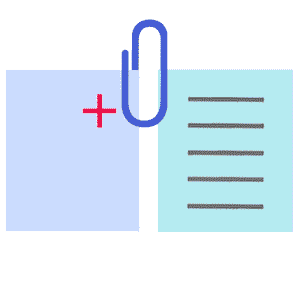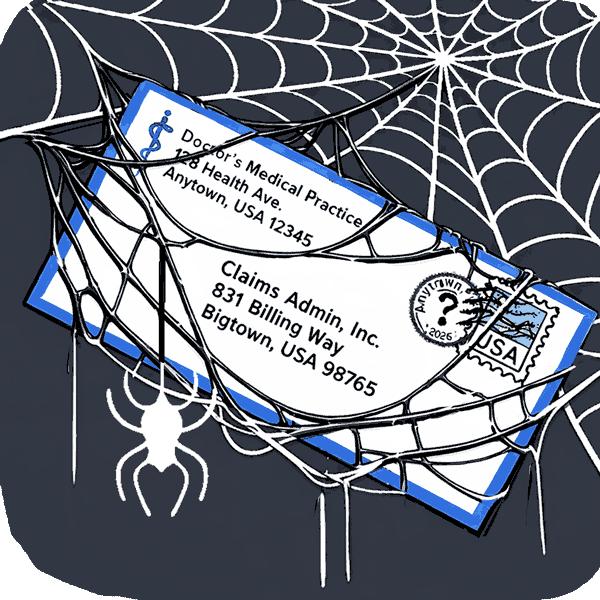LA County to QME/AMEs: Go Back to Snail Mail

The year is 2023, and the County of Los Angeles wants Medical-Legal physicians to do business like it’s 1978.
The public employer insists that QMEs and AMEs must mail bills for Medical-Legal services; LA County will no longer accept bills electronically, including by fax or email. The county made this punitive demand despite the following facts:
- Nothing in California law or regulations dictates how evaluators must send bills for Medical-Legal services.
- An LA County representative acknowledged that there had been no problems with the receipt of over 27,000 Medical-Legal bills electronically sent by daisyBillers since 2014.
- e-Billing, faxing, and emailing are faster, more efficient, sustainable, and secure ways to transmit Medical-Legal bills and (often voluminous) reports.
- e-Billing standardizes Medical-Legal billing formats, making bill processing infinitely easier for the claims administrator.
- California recently changed Medical-Legal regulations to allow electronic service of Medical-Legal reports and documents to the parties to the dispute.
While California does not require claims administrators to accept Medical-Legal bills delivered electronically, every other claims administrator billed via daisyBill accepts electronically transmitted Medical-Legal bills voluntarily. Yet for reasons that remain unfathomable, LA County will only accept Medical-Legal bills and reports through the mail.
If there were an award for nonsensical efforts to make workers’ comp even more frictious, time-consuming, resource-wasting, and prohibitive for physicians, LA County would be the hands-down winner of this rubber chicken dinner. When a public employer chooses to be a model of inefficiency, no one wins — particularly not injured public workers.
There’s no other way to say it: LA County’s decision is an embarrassment to California workers’ comp, and a monument to the kind of government inefficiency that depletes trust in public institutions.
No CA Regulation Bars Medical-Legal e-Billing
Per California Labor Code 4622, the Administrative Director is responsible for determining the manner in which bills for Medical-Legal evaluations are submitted. Yet there is not a single line of regulatory language instructing evaluators on the submission of California Medical-Legal evaluations.
The only instructions for Medical-Legal billing are found in California Code of Regulations sections 9793, 9794, and 9795 — none of which prohibit or even mention e-billing, or faxing or emailing bills. This regulatory silence means that AMEs and QMEs should be free to deliver their billing information in the most efficient manner possible.
Presumably, LA County justified its decision based on a problematic assertion on the Division of Workers’ Compensation (DWC) FAQ web page, which incorrectly declares that Medical-Legal bills must be delivered “on paper” — a demonstrably baseless statement unsupported by the Administrative Director’s regulations.
CCR 9793 simply instructs:
“‘Reports and documents required by the administrative director’ means an itemized billing, a copy of the medical-legal evaluation report, any correspondence received by the physician from the parties to the action, and any verification required under Section 9795(c).”
As a result, literally every claims administrator in California (except LA County) accepts Medical-Legal bills electronically. And why wouldn’t they?
CA Allows Electronic Service of Med-Legal Documents to Parties
As if to underscore how much sense it makes to transmit Medical-Legal correspondence electronically, the DWC began allowing electronic service of Medical-Legal documents last year — but only to parties to the dispute.
In justifying the decision to require acceptance of electronically-served documents, the Workers Compensation Appeals Board (WCAB) noted:
“...it is preferable to allow the parties the greatest possible latitude over the method of service, because rules cannot adequately anticipate the full range of possible future developments that may render their provisions ineffective in light of changed circumstances.”
In other words, the idea behind the new regulations was to allow for the most flexibility and choice regarding the means of serving Medical-Legal documents, particularly as unforeseen circumstances present themselves. That includes acute circumstances like COVID-19, and presumably broad circumstances like the availability of better technology.
Why doesn’t the same principle apply to sending Medical-Legal bills to claims administrators?
It is the 21st century. The Internet exists, to say nothing of fax machines. By utilizing technology, physicians and payers should be free to cut down on the extraordinary administrative burdens associated with workers’ comp disputes.
LA County: Punishing Med-Legal Physicians
Last week, a representative of LA County’s Third-Party Administrator (TPA), Sedgwick Claims Management Services, Inc., reached out to daisyBill to inform us of LA County’s demand that evaluators mail Medical-Legal bills, and its refusal to accept bills delivered in any electronic format.
QMEs and AMEs billing LA County are expected instead to pack pages upon pages of documents, determine which of four different mailing addresses the package should go to based on the claim number, and hope everything makes it to Sedgwick and that payment from LA County arrives on time.
Moreover, any necessary Second Review appeals will also have to be submitted, complete with however many reams of documentation are necessary, through the mail.
Claim Number Pattern |
Sedgwick Unit |
Starting with 1000 or ending in A |
Unit 1000 |
Starting with 2000 or ending in B |
Unit 2000 |
Starting with 3000 or ending in C |
Unit 3000 |
Starting with 5000 or ending in D |
Unit 5000 |
As the WCAB stated regarding the decision to end the prohibition on electronic service of Medical-Legal documents to the parties:
“...detailed rules regarding the method of service are more likely to empower the small number of bad actors in the system than to constrain them, by allowing them to assert frivolous, non-material violations of the rules governing the method of service as a means to gain advantage over opposing parties.”
If there were to be an actor in the system asserting a frivolous non-material violation of the rules governing the method of service (in this case, service of the bill) it will be whoever is responsible for LA County’s senseless decision to start denying payment for Medical-Legal e-bills.
Anyone with experience in workers’ comp billing can predict the likely results of this folly. With the electronic delivery of our 27,000 Medical-Legal bills in the past, physicians had verifiable proof of bill receipt. Going forward, we can expect to hear claims that LA County didn’t receive bills or required documents.
Physicians, get ready to hear the old phrase again: “lost in the mail.”
This public employer is going out of its way to punish physician evaluators and hold California workers’ comp back — or rather, to send workers’ comp back to a time before widely available technology offered solutions to some of the system’s ills.
Maybe someday the Pony Express can drag LA County back into modernity. In the meantime, QMEs, AMEs, and their staff will have to drag themselves to the post office, pointlessly.
Med-Legal billing requires specialized expertise. daisyCollect professionals use our advanced software (and years of experience) to protect your practice. Learn more and request a demo below:
LEARN MORE
DaisyBill provides content as an insightful service to its readers and clients. It does not offer legal advice and cannot guarantee the accuracy or suitability of its content for a particular purpose.




